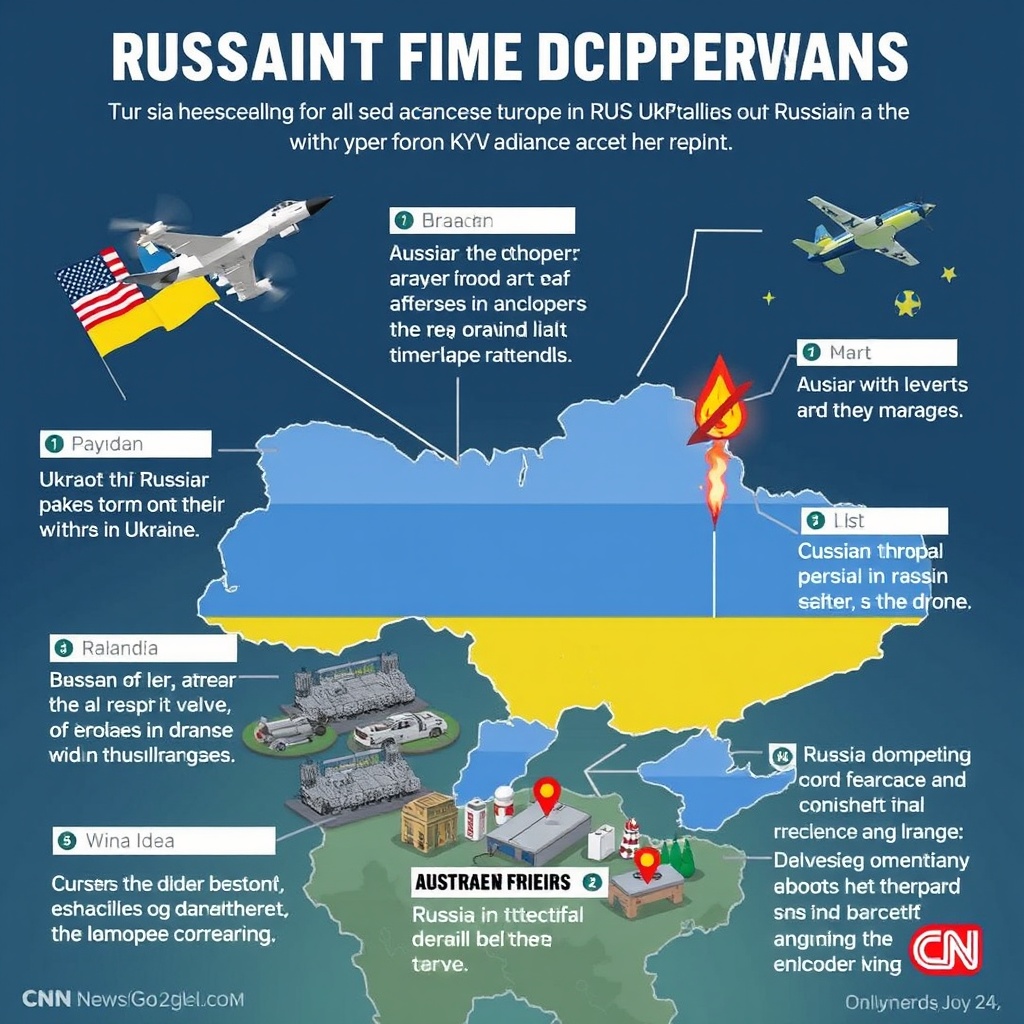Introduction
The ongoing conflict between Russia and Ukraine has taken a devastating turn, with Russia launching its largest aerial assault on Ukrainian territories in three years. The attack, which targeted the capital city of Kyiv and other regions, has sparked widespread concern and condemnation from the international community. Ukrainian President Volodymyr Zelensky has accused the United States of "silence" in the face of Russian aggression, suggesting that this perceived inaction is emboldening Russian President Vladimir Putin to continue his campaign of violence. As the situation continues to escalate, it is essential to examine the context and implications of this latest development in the Russia-Ukraine conflict.
The Russian Aerial Assault
The recent aerial assault launched by Russia is the largest of its kind since the conflict began in 2022. The attack involved a significant number of missiles and drones, which were deployed to target various regions of Ukraine, including the capital city of Kyiv. The assault has resulted in significant damage to infrastructure and civilian casualties, further exacerbating the humanitarian crisis in the region. According to reports, the attack was designed to overwhelm Ukraine's air defense systems, which have been bolstered by Western support in recent months.
The use of drones in the attack is particularly notable, as it represents a significant escalation of Russia's military tactics. Drones have become an increasingly important component of modern warfare, allowing countries to conduct precision strikes without risking manned aircraft. However, their use also raises concerns about the potential for civilian casualties and the difficulty of defending against such attacks. In the context of the Russia-Ukraine conflict, the deployment of drones has significant implications for the balance of power and the ability of Ukraine to defend itself against Russian aggression.
International Response and Implications
The international response to the Russian aerial assault has been swift and condemnatory. Western leaders, including those from the United States, the United Kingdom, and the European Union, have denounced the attack and called for an immediate cessation of hostilities. However, President Zelensky's accusation of US "silence" suggests that there is a perception of inadequate action from the international community to address the crisis.
The implications of this perceived inaction are significant. If Russia is seen as being able to act with impunity, without facing meaningful consequences for its actions, it may embolden Putin to continue his aggressive campaign in Ukraine. This could have far-reaching consequences, not only for Ukraine but also for regional and global stability. The conflict in Ukraine has already had significant economic and humanitarian impacts, and a further escalation could have devastating effects on the global economy and international relations.
The Role of the United States and Western Allies
The role of the United States and Western allies in the Russia-Ukraine conflict is critical. The provision of military aid and economic support has been essential in enabling Ukraine to defend itself against Russian aggression. However, the accusation of US "silence" suggests that there is a perception that more needs to be done to address the crisis.
One potential area for increased action is in the imposition of sanctions on Russia. Sanctions have been a key tool in the Western response to Russian aggression, and there is evidence to suggest that they have had a significant impact on the Russian economy. However, there is also a risk that sanctions could have unintended consequences, such as exacerbating the humanitarian crisis in Ukraine or destabilizing the global economy.
Another potential area for action is in the provision of diplomatic support to Ukraine. The international community can play a crucial role in facilitating negotiations between Ukraine and Russia, and in promoting a peaceful resolution to the conflict. This could involve the deployment of international observers, the facilitation of dialogue between the two sides, and the provision of economic and humanitarian support to affected communities.
Conclusion
The recent Russian aerial assault on Ukraine is a devastating development in a conflict that has already had far-reaching humanitarian and economic impacts. The accusation of US "silence" by President Zelensky highlights the need for the international community to take a more active role in addressing the crisis. The provision of military aid, economic support, and diplomatic engagement will be essential in enabling Ukraine to defend itself against Russian aggression and in promoting a peaceful resolution to the conflict.
As the situation continues to escalate, it is essential that the international community remains vigilant and committed to supporting Ukraine. This will require a coordinated and sustained effort from Western allies, including the United States, the United Kingdom, and the European Union. It will also require a willingness to impose meaningful consequences on Russia for its actions, while avoiding unintended consequences that could exacerbate the humanitarian crisis or destabilize the global economy.
Ultimately, the resolution of the Russia-Ukraine conflict will require a comprehensive and multifaceted approach, involving diplomatic, economic, and military components. The international community must work together to promote a peaceful and sustainable resolution to the conflict, one that respects the sovereignty and territorial integrity of Ukraine and addresses the legitimate concerns of all parties involved. By doing so, we can help to bring an end to the suffering of the Ukrainian people and promote a more stable and secure future for the region.


Leave a comment